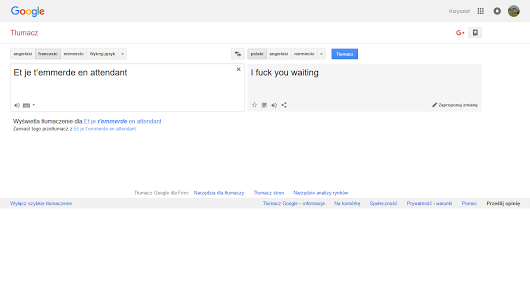Ballata degli impiccati
La versione inglese di Dennis Criteser [2014]

Dal blog Fabrizio De André in English
"La ballata degli impiccati" is closely related to a 1462 poem, "Ballade des pendus" by François Villon, written in prison while waiting for his execution. Whereas Villon asks for pity for the condemned, the lyrics of De Andrè and Bentivoglio express rancor for those who judged, for those who buried, even for those who remembered, all of whom will inevitably also meet their ends.
Tutti morimmo a stento, released in 1968, was one of the first concept albums in Italy. In De Andrè's own words, the album "speaks of death, not of bubble gum death with little bones, but of psychological death, moral death, mental death, that a normal person can encounter during his lifetime." After the success of Volume I, De André was provided for this next album a cutting edge recording studio complete with an 80-member orchestra, directed by Gian Piero Reverberi, and a... (Continues)
"La ballata degli impiccati" is closely related to a 1462 poem, "Ballade des pendus" by François Villon, written in prison while waiting for his execution. Whereas Villon asks for pity for the condemned, the lyrics of De Andrè and Bentivoglio express rancor for those who judged, for those who buried, even for those who remembered, all of whom will inevitably also meet their ends.
Tutti morimmo a stento, released in 1968, was one of the first concept albums in Italy. In De Andrè's own words, the album "speaks of death, not of bubble gum death with little bones, but of psychological death, moral death, mental death, that a normal person can encounter during his lifetime." After the success of Volume I, De André was provided for this next album a cutting edge recording studio complete with an 80-member orchestra, directed by Gian Piero Reverberi, and a... (Continues)
BALLAD OF THE HANGED MEN
(Continues)
(Continues)
Contributed by Riccardo Venturi 2016/2/9 - 21:49
Fabrizio De André: Amico fragile
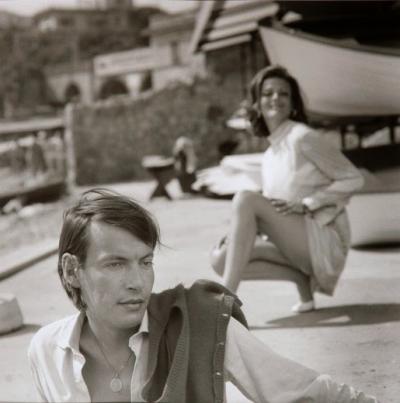
Dal blog Fabrizio De André in English
"De André wrote "Amico fragile" in a drunken rage after attending a party of rich Italians vacationing on Sardinia. They were only interested in having him play guitar and sing his songs, whereas De André wanted to engage people in discussions about events going on in Italy. He became ever more frustrated and inebriated with the shallowness of the evening, returning home to stay up all night and produce this "stream of semi-consciousness" rant. The song was a staple in his live shows and was one of De André's favorites." - Dennis Criteser
"De André wrote "Amico fragile" in a drunken rage after attending a party of rich Italians vacationing on Sardinia. They were only interested in having him play guitar and sing his songs, whereas De André wanted to engage people in discussions about events going on in Italy. He became ever more frustrated and inebriated with the shallowness of the evening, returning home to stay up all night and produce this "stream of semi-consciousness" rant. The song was a staple in his live shows and was one of De André's favorites." - Dennis Criteser
FRAGILE FRIEND
(Continues)
(Continues)
Contributed by Riccardo Venturi 2016/2/9 - 20:47
Andrea
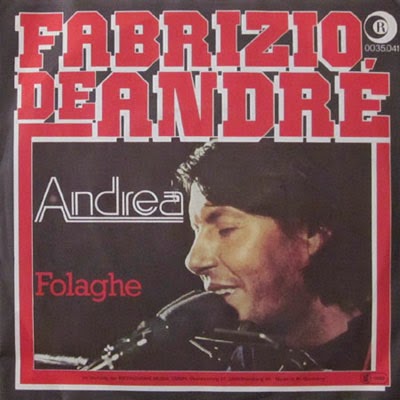
Dal blog Fabrizio De André in English
"Andrea" is both an anti-war song and a statement of solidarity with and acceptance of gays, as the song is about the love between two men (Andrea is a man's name in Italian). The setting for the song is World War I, which can be deduced because intense battles occurred on the ground in the mountains of Trent during WWI, whereas in WWII Trent suffered bombing from the air by the Germans toward the end of the war.
Rimini grew out of De André's disappointments with the political events of the previous couple of years. In close collaboration with Massimo Bubola, a young 24-year-old who had just released his first album, De André explored several social and political themes, including abortion, homosexuality, and how the petty bourgeois attempted to move into the ranks of the powerful and rise above the political and social turmoil of the times. The music... (Continues)
"Andrea" is both an anti-war song and a statement of solidarity with and acceptance of gays, as the song is about the love between two men (Andrea is a man's name in Italian). The setting for the song is World War I, which can be deduced because intense battles occurred on the ground in the mountains of Trent during WWI, whereas in WWII Trent suffered bombing from the air by the Germans toward the end of the war.
Rimini grew out of De André's disappointments with the political events of the previous couple of years. In close collaboration with Massimo Bubola, a young 24-year-old who had just released his first album, De André explored several social and political themes, including abortion, homosexuality, and how the petty bourgeois attempted to move into the ranks of the powerful and rise above the political and social turmoil of the times. The music... (Continues)
ANDREA
(Continues)
(Continues)
Contributed by Riccardo Venturi 2016/2/9 - 20:36
Canzone per l’estate
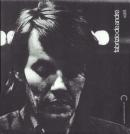
Dal blog Fabrizio De André in English
"The music of "Canzone per l'estate" is entirely De Gregori's, while the lyrics were co-written. De André described the song as somewhat autobiographical, describing the tension between the bourgeois life he grew up in and lived much of his life in, and his attraction to anarchism and to society's outcasts who seemed more genuine and alive than the upper classes. Indeed the song describes well the soul-sapping nature of a comfortable, prosperous life that takes one away from vitality and even political engagement ("your eyes closed to the people")." - Dennis Criteser
SONG FOR THE SUMMER
(Continues)
(Continues)
Contributed by Riccardo Venturi 2016/2/9 - 20:25
La cattiva strada

Dal blog Fabrizio De André in English
"Literally, "cattiva strada" means "bad road." But in a moral sense, if you're straying down the wrong path, going down a slippery slope or leading someone astray, you're on a "cattiva strada" and more than a paving crew will be needed. Author and De André expert Cesare Romana observed the following about "La cattiva strada": "The song is among the most illustrative of the philosophy of a great moralist disguised as an 'immoralist.' The bad road represents a pirate ethic, and also the free port where the powers-that-be don't come. Thus it comes to be defined as bad, yet holding these mainstream powers at a distance endows a force most subversive and revolutionary that can be placed at our disposition: love. The fact is that De André never moved far from the bad road. He continued to think that the humanity, love and dignity of man resided there, and... (Continues)
"Literally, "cattiva strada" means "bad road." But in a moral sense, if you're straying down the wrong path, going down a slippery slope or leading someone astray, you're on a "cattiva strada" and more than a paving crew will be needed. Author and De André expert Cesare Romana observed the following about "La cattiva strada": "The song is among the most illustrative of the philosophy of a great moralist disguised as an 'immoralist.' The bad road represents a pirate ethic, and also the free port where the powers-that-be don't come. Thus it comes to be defined as bad, yet holding these mainstream powers at a distance endows a force most subversive and revolutionary that can be placed at our disposition: love. The fact is that De André never moved far from the bad road. He continued to think that the humanity, love and dignity of man resided there, and... (Continues)
THE ERRANT WAY
(Continues)
(Continues)
Contributed by Riccardo Venturi 2016/2/9 - 18:41
C'era una volta
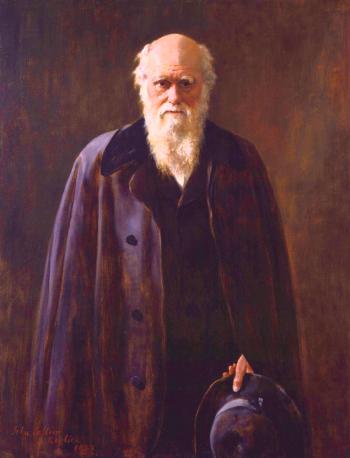
Chanson italienne – C'era una volta – Giorgio Laneve – 1976
Aux débuts des années '70, dans la vague « cantautorale » (chansonnière) italienne qui aura duré, plus ou moins, jusqu'à la fin de la décennie pour ensuite succomber (même musicalement) lors des années de strontium de la décennie suivante, Giorgio Laneve représenta une voix certes menue et polie, mais avec des traits d'originalité (et d'authentique poésie). Ingénieur électronique de formation, Giorgio Laneve commença fort jeune et, pendant une certaine période, il jouit même d'une certaine popularité, sans jouer des coudes (moi-même je me rappelle d'avoir vu une allusion à lui dans le journal de Mickey Mouse, je ne plaisante pas). En 1970, à 24 ans à peine, arriva à l'improviste en second au alors très célèbre « Disque pour l'été » avec Amore dove sei?Amour où es -tu ? , qui reste probablement sa chanson la plus célèbre. Il... (Continues)
Aux débuts des années '70, dans la vague « cantautorale » (chansonnière) italienne qui aura duré, plus ou moins, jusqu'à la fin de la décennie pour ensuite succomber (même musicalement) lors des années de strontium de la décennie suivante, Giorgio Laneve représenta une voix certes menue et polie, mais avec des traits d'originalité (et d'authentique poésie). Ingénieur électronique de formation, Giorgio Laneve commença fort jeune et, pendant une certaine période, il jouit même d'une certaine popularité, sans jouer des coudes (moi-même je me rappelle d'avoir vu une allusion à lui dans le journal de Mickey Mouse, je ne plaisante pas). En 1970, à 24 ans à peine, arriva à l'improviste en second au alors très célèbre « Disque pour l'été » avec Amore dove sei?Amour où es -tu ? , qui reste probablement sa chanson la plus célèbre. Il... (Continues)
IL ÉTAIT UNE FOIS
(Continues)
(Continues)
Contributed by Marco Valdo M.I. 2016/2/9 - 15:23
Canzone per l’estate

In realtà, Fabrizio De André descrisse questa canzone (il cui testo è, sarà bene ricordarlo, stato scritto assieme a Francesco De Gregori) come in un certo qual modo autobiografica. Parla, secondo De André, della tensione tra la vita borghese in cui era cresciuto e aveva vissuto parte della sua vita, e l’attrazione per l’Anarchia e per gli “ultimi” della società, che gli sembravano molto più vivi e genuini delle classi superiori. Fatta salva l’oscurità del testo, caratteristica del resto saliente di quell’album “degregoriano”, si avverte comunque abbastanza bene l’attacco alla vita borghese, confortevole e prospera, che distoglie l’essere umano dalla vitalità e dall’impegno politico (gli “occhi chiusi sulla gente”). Per quel che mi riguarda, l’ho sempre avvertita molto come una canzone sulla dissoluzione della famiglia borghese.
Riccardo Venturi 2016/2/9 - 08:06
Il testamento di Tito

Dal blog Fabrizio De André in English
"Il testamento di Tito" takes us into the Old Testament to the Ten Commandments. Tito, the so-called good thief from the Syriac Infancy Gospel, recounts how he violated each of the commandments (except "Thou shalt not kill"), offering critiques along the way. De André considered this song one of his very best for its hard-hitting social impact." - Dennis Criteser
TITO'S WILL
(Continues)
(Continues)
Contributed by Riccardo Venturi 2016/2/9 - 07:42
Il Pescatore

Dal blog Fabrizio De André in English
"Il pescatore" was released in 1970 as a single. One of De André's most popular songs, it never appeared on a studio album, but can be heard on several live albums." - Dennis Criteser
THE FISHERMAN
(Continues)
(Continues)
Contributed by Riccardo Venturi 2016/2/9 - 07:27
La domenica delle salme
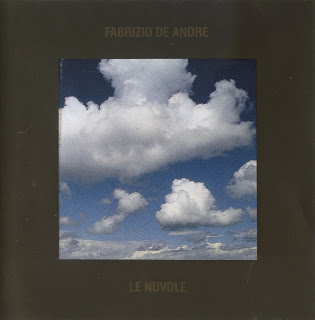
Dal blog Fabrizio De André in English
""La domenica delle salme" is one of De André's most political songs, full of references not easily discernible. The second verse refers to a Milan retirement home resident who was discovered dead under mysterious circumstances. The third verse may refer to a series of murders by a neo-Nazi duo who tagged themselves as Ludwig. The fourth verse refers to the Polish refugees who came to Italy after the fall of the Soviet Union and who worked the streets cleaning car windows (i.e., redoing the makeup of the capitalists heading off to the beach). The fifth verse refers to businessmen looking to profit from the opening of the countries of the former Soviet Union, and the sixth verse refers to the neo-Nazism that subsequently raised its head. The seventh verse may refer to the need for another visible symbol for members of the left and the right to use to... (Continues)
""La domenica delle salme" is one of De André's most political songs, full of references not easily discernible. The second verse refers to a Milan retirement home resident who was discovered dead under mysterious circumstances. The third verse may refer to a series of murders by a neo-Nazi duo who tagged themselves as Ludwig. The fourth verse refers to the Polish refugees who came to Italy after the fall of the Soviet Union and who worked the streets cleaning car windows (i.e., redoing the makeup of the capitalists heading off to the beach). The fifth verse refers to businessmen looking to profit from the opening of the countries of the former Soviet Union, and the sixth verse refers to the neo-Nazism that subsequently raised its head. The seventh verse may refer to the need for another visible symbol for members of the left and the right to use to... (Continues)
PSALM SUNDAY
(Continues)
(Continues)
Contributed by Riccardo Venturi 2016/2/9 - 07:07
Carlo Martello torna [o: ritorna] dalla battaglia di Poitiers; o Carlo Martello
![Carlo Martello torna <i>[o: ritorna]</i> dalla battaglia di Poitiers; <i>o</i> Carlo Martello](img/thumb/c1095_130x140.jpeg?1328357200)
Dal blog Fabrizio De André in English
"This song was released in 1963 as the B side of a 45 with "Il fannullone" as the A-side. The text was written by a friend from childhood, Paolo Villagio, and the music is by De Andrè. The Battle of Poitiers occurred in 732, a battle between the Franks and the Moors in what is now northern France. The song is in the style of popular French pastourelles sung by medieval troubadours about encounters between knights and country girls. In 1965 a complaint was brought against De Andrè and his label Karim for obscene content in the lyrics. The case was settled in De Andrè's favor in 1968. The Italian in this song is an old style, and Riccardo Venturi has done a nice translation into a similarly "olde" style of English." - Dennis Criteser
CHARLES MARTEL RETURNS FROM THE BATTLE OF POITIERS
(Continues)
(Continues)
Contributed by Riccardo Venturi 2016/2/9 - 06:56
Il fannullone
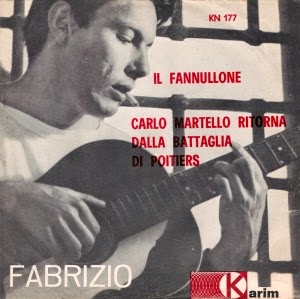
Dal blog Fabrizio De André in English
"Il fannul[l]one" was the A-side of De Andrè's third single on Karim, released in 1963. It was co-written with Paolo Villaggio, a childhood friend. There are several strains in this early song that will surface regularly in later songs: going against the grain of mainstream society, a sense of irony towards so-called respectable folk ("la gente per bene"), and an irreverent and playful attitude. The song no doubt sprang from the anti-conformist lifestyles of the two young authors. Riccardo Venturi called this song "deliciously revolutionary and subversive" and described it as a "hymn to doing nothing," where to do nothing is to live life truly, not allowing a dehumanized corporate complex to take it away from you." - Dennis Criteser
"Il fannul[l]one" was the A-side of De Andrè's third single on Karim, released in 1963. It was co-written with Paolo Villaggio, a childhood friend. There are several strains in this early song that will surface regularly in later songs: going against the grain of mainstream society, a sense of irony towards so-called respectable folk ("la gente per bene"), and an irreverent and playful attitude. The song no doubt sprang from the anti-conformist lifestyles of the two young authors. Riccardo Venturi called this song "deliciously revolutionary and subversive" and described it as a "hymn to doing nothing," where to do nothing is to live life truly, not allowing a dehumanized corporate complex to take it away from you." - Dennis Criteser
THE SLOUCH
(Continues)
(Continues)
Contributed by Riccardo Venturi 2016/2/9 - 06:20
Le formiche

Chanson italienne – Le formiche – Giorgio Laneve – 1976
Aux débuts des années '70, dans la vague « cantautorale » (chansonnière) italienne qui aura duré, plus ou moins, jusqu'à la fin de la décennie pour ensuite succomber (même musicalement) lors des années de strontium de la décennie suivante, Giorgio Laneve représenta une voix certes menue et polie, mais avec des traits d'originalité (et d'authentique poésie). Ingénieur électronique de formation, Giorgio Laneve commença fort jeune et, pendant une certaine période, il jouit même d'une certaine popularité, sans jouer des coudes (moi-même je me rappelle d'avoir vu une allusion à lui dans le journal de Mickey Mouse, je ne plaisante pas). En 1970, à 24 ans à peine, arriva à l'improviste en second au alors très célèbre « Disque pour l'été » avec Amore dove sei?Amour où es -tu ? , qui reste probablement sa chanson la plus célèbre. Il fut même... (Continues)
Aux débuts des années '70, dans la vague « cantautorale » (chansonnière) italienne qui aura duré, plus ou moins, jusqu'à la fin de la décennie pour ensuite succomber (même musicalement) lors des années de strontium de la décennie suivante, Giorgio Laneve représenta une voix certes menue et polie, mais avec des traits d'originalité (et d'authentique poésie). Ingénieur électronique de formation, Giorgio Laneve commença fort jeune et, pendant une certaine période, il jouit même d'une certaine popularité, sans jouer des coudes (moi-même je me rappelle d'avoir vu une allusion à lui dans le journal de Mickey Mouse, je ne plaisante pas). En 1970, à 24 ans à peine, arriva à l'improviste en second au alors très célèbre « Disque pour l'été » avec Amore dove sei?Amour où es -tu ? , qui reste probablement sa chanson la plus célèbre. Il fut même... (Continues)
LES FOURMIS
(Continues)
(Continues)
Contributed by Marco Valdo M.I. 2016/2/8 - 23:29
Timber (Jerry the Mule)

Splendida versione!!! What a Voice!!!
Si tratta di Jewel Brown, classe 1937, la quale - chissà perchè - ebbe una breve carriera e quasi solo come "sidegirl" di Louis Armstrong. Si ritirò dalle scene già nel 1971. Peccato...
E' tornata nel 2012 con un disco per la Dialtone Records, insieme al chitarrista Milton Hopkins, ma senza suscitare grande clamore...
Si tratta di Jewel Brown, classe 1937, la quale - chissà perchè - ebbe una breve carriera e quasi solo come "sidegirl" di Louis Armstrong. Si ritirò dalle scene già nel 1971. Peccato...
E' tornata nel 2012 con un disco per la Dialtone Records, insieme al chitarrista Milton Hopkins, ma senza suscitare grande clamore...
Bernart Bartleby 2016/2/8 - 20:18
La Avenida de los Tilos

Non mi ero accorto che c'era già una canzone, contribuita pure di recente, sulla vicenda dei giovani rugbysti argentini, Ellos nos han separado...
Grazie DQ82!
Grazie DQ82!
Bernart Bartleby 2016/2/8 - 13:03
Sólo le pido a Dios

Esiste su YouTube anche una struggente interpretazione di questa canzone (in lingua originale) da parte del cantautore bolognese Germano Bonaveri.
Andrea Pesce 2016/2/7 - 23:54
Petit Pasqua Noël

PICCOLO PASQUA NATALE
(Continues)
(Continues)
Contributed by Daniel(e) Bellucci . 07.02.2016. Nizza 2016/2/7 - 23:34
A Change Is Gonna Come

Fu rilasciata come bonus track del Greatest Hits del gruppo
A CHANGE IS GONNA COME
(Continues)
(Continues)
2016/2/7 - 21:54
An' He Never Said a Mumberlin’ Word
Anonymous
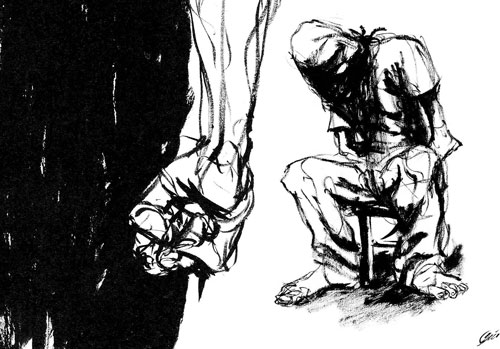
Una poesia di Wisława Szymborska, nella raccolta Koniec i początek del 1993.
TORTURY
Nic się nie zmieniło.
Ciało jest bolesne,
jeść musi i oddychać powietrzem i spać,
ma cienką skórę, a tuż pod nią krew,
ma spory zasób zębów i paznokci,
kości jego łamliwe, stawy rozciągliwe.
W torturach jest to wszystko brane pod uwagę.
Nic się nie zmieniło.
Ciało drży, jak drżało
przed założeniem Rzymu i po założeniu.
w dwudziestym wieku przed i po Chrystusie,
tortury są, jak były, zmalała tylko ziemia
i cokolwiek się dzieje, to tak jak za ścianą.
Nic się nie zmieniło.
Przybyło tylko ludzi,
obok starych przewinień zjawiły się nowe,
rzeczywiste, wmówione, chwilowe i żadne,
ale krzyk, jakim ciało za nie odpowiada,
był, jest i będzie krzykiem niewinności,
podług odwiecznej skali i rejestru.
Nic się nie zmieniło.
Chyba tylko maniery, ceremonie, tańce.
Ruch rąk osłaniających głowę
pozostał... (Continues)
TORTURY
Nic się nie zmieniło.
Ciało jest bolesne,
jeść musi i oddychać powietrzem i spać,
ma cienką skórę, a tuż pod nią krew,
ma spory zasób zębów i paznokci,
kości jego łamliwe, stawy rozciągliwe.
W torturach jest to wszystko brane pod uwagę.
Nic się nie zmieniło.
Ciało drży, jak drżało
przed założeniem Rzymu i po założeniu.
w dwudziestym wieku przed i po Chrystusie,
tortury są, jak były, zmalała tylko ziemia
i cokolwiek się dzieje, to tak jak za ścianą.
Nic się nie zmieniło.
Przybyło tylko ludzi,
obok starych przewinień zjawiły się nowe,
rzeczywiste, wmówione, chwilowe i żadne,
ale krzyk, jakim ciało za nie odpowiada,
był, jest i będzie krzykiem niewinności,
podług odwiecznej skali i rejestru.
Nic się nie zmieniło.
Chyba tylko maniery, ceremonie, tańce.
Ruch rąk osłaniających głowę
pozostał... (Continues)
Bernart Bartleby 2016/2/7 - 21:38
×
![]()



